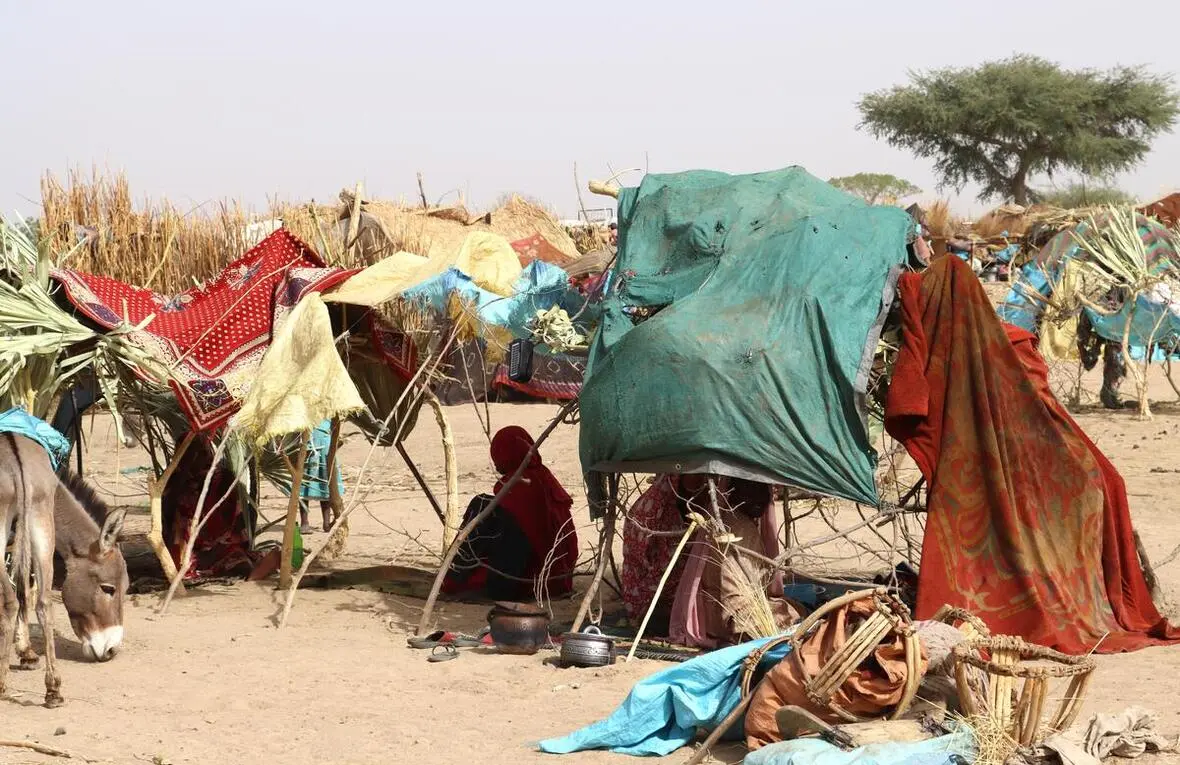
Sudanese refugees who have recently arrived in Chad. © UNHCR/Aristophane Ngargoune
Khartoum/New York/Washington/N’Djamena: The Sudanese Armed Forces and the Rapid Support Forces extended the current ceasefire for an additional 72 hours. Calling for its “full implementation”, members of the Trilateral Mechanism (the African Union, the Intergovernmental Authority on Development, and the United Nations) and the Quad (the Kingdom of Saudi Arabia, the United Arab Emirates, the United Kingdom, and the United States) on Sudan, in a joint statement today (IST), welcomed the announcement by the Armed Forces and RSF.
The warring forces have expressed their readiness to engage in dialogue toward establishing a more durable cessation of hostilities and ensuring unimpeded humanitarian access.
Also read: 72-hour ceasefire in Sudan but the situation remains complex
“This initial phase of diplomacy to establish a process to achieve a permanent cessation of hostilities and humanitarian arrangements will contribute to action on the development of a de-escalation plan as outlined in the April 20 African Union communique, which was endorsed by the League of Arab States, the European Union, the Troika, and other bilateral partners,” the joint statement said.
Resident and Humanitarian Coordinator Abdou Dieng, speaking from Port Sudan, told reporters in the briefing room in New York said humanitarians who were relocated to Port Sudan on the Red Sea coast would be returning to the Sudanese capital, as soon as the situation allows.
In Khartoum, the World Health Organization (WHO) reported that more than 60 per cent of health facilities are closed and only 16 per cent are operating as normal.
“Our partners tell us that the treatment of nearly 50,000 acutely malnourished children has been disrupted,” Farhan Haq, Deputy Spokesman for the United Nations Secretary-General, told reporters in New York.
Reports suggest that hundreds have been killed, and thousands wounded as the rival militia battled each other in civilian areas. According to UNICEF (United Nations Children’s Fund), at least nine children were reportedly killed, and more than 50 were injured during the fighting that erupted on April 15, 2023.
The UN Emergency Relief Coordinator, Martin Griffiths, has allocated $3 million from the Central Emergency Response Fund (CERF) to urgently respond to the arrival of Sudanese refugees and others in neighbouring Chad. According to International Organization for Migration IOM), as many as 20,000 people – among them Chadians, Sudanese, and foreign nationals – fleeing the violence in Sudan, had arrived so far in neighbouring Chad, which shares a 1400 km-long border with Sudan. The new arrivals are from Darfur, one of the regions of Sudan most affected by violence and where growing instability might cause much larger displacement in the coming weeks.
Chad has already strained resources and is already hosting almost 600,000 refugees.“The majority of those arriving are in dire need of basic humanitarian aid, namely food, water and adequate shelter,” Anne Kathrin Schaefer, IOM Chad Chief of Mission, said in N’Djamena.
Sudan hosts a record 1.3 million migrants according to the United Nations Department of Economic and Social Affairs (UN DESA). Due to its geographical location, it is an important country on the migration route linking the Central, North and Horn of Africa Regions.
Earlier today (IST), in Washington, [D.C.,] the UN Secretary-General António Guterres discussed with United States Secretary of State Antony Blinken the importance of multilateral efforts to address current security challenges, such as the conflict in Sudan and the critical importance for an immediate fully respected ceasefire and the urgent need to alleviate the plight of affected civilians. According to the United Nations High Commissioner for Refugees, humanitarian needs in Sudan were already enormous prior to the surge in violence, including those of the 3.7 million internally displaced people. “Their numbers are rapidly increasing, although no statistics are yet available,” it said.
– global bihari bureau





